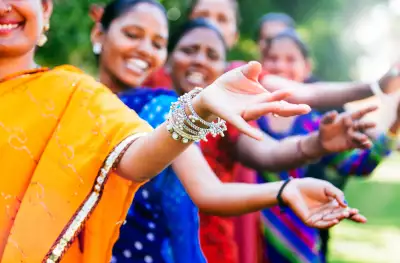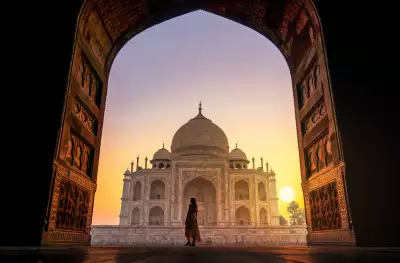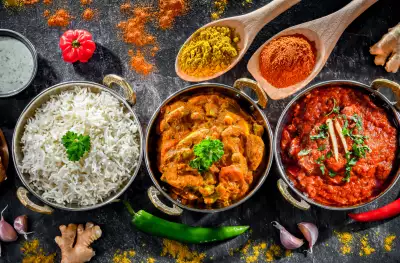The Dos and Don'ts of Moroccan Culture
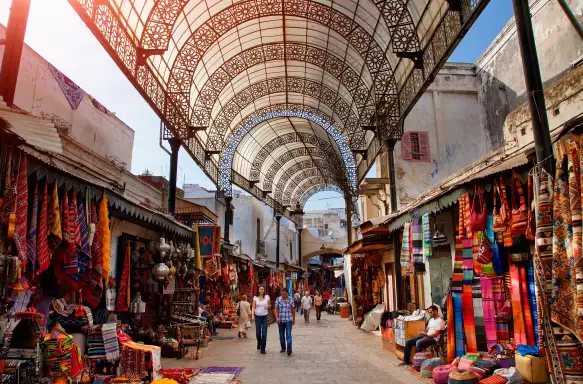
Morocco is a land that seduces the senses; a tapestry of vivid colours, fragrant spices, ancient medinas, and the haunting call to prayer echoing through labyrinthine streets. From the snow-capped Atlas Mountains to the sun-drenched sands of the Sahara, Morocco offers a compelling mix of tradition and modernity.
To truly appreciate this North African gem, approach it with humility, curiosity, and a willingness to learn. Take your time. Sip the tea. Listen to the stories. And let Morocco unfold at its own beautiful pace. If you do, you’ll find yourself welcomed not just as a visitor - but as a guest.
Here’s your essential guide to the dos and don’ts of Moroccan culture.
Dos of Moroccan culture
Speak the language
In Morocco, less than 20% of the population speaks English - French is more widely known. It's not necessary to know Arabic in order to communicate but locals appreciate the effort, For a more authentic, respectful travel experience - and a warmer interaction - using a few keywords and phrases, can help:
- Salam Alaikum (sahl-ah-moh al-ay-koom)– Hello (It's used as a greeting but actually translates to 'Peace be upon you')
- Wa alaikum assalam (wa-uh-lay-kuh-mu s-sa-laam) - Hello in response to 'Salam Alaikum' ('And peace be upon you too')
- Na’am (na-am) - yes
- La - No
- Min Fadlak (min fad-lik) - Please
- Shukran (shook-ran) – Thank you
- Excuse me (ah-wahn) - Afwan
- La shukran (La shook-ran) – No, thank you
- Bslama (Bis-la-mal) – Goodbye/ See you later
- Bikam yakuluf? (Bik-yam ya-khoo-lof) - How much does it cost?
Dress with respect
While it's more liberal than some of its neighbours, Morocco is a Muslim-majority country. It's used to tourists but modesty is still the norm so dressing conservatively is a sign of respect. For women, this means covering your shoulders, cleavage and knees. Men should avoid going shirtless or wearing very short shorts. If you're heading to the beaches in Essaouira or Agadir, swimwear is fine on the sand, but be sure to cover up before you leave.
Pro tip: A lightweight scarf is multifunctional, ideal for covering up as needed or shielding you from the sun.
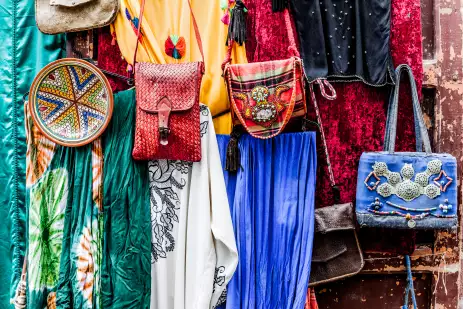
Bargain in the souks
Haggling is expected and even encouraged. Think of it as a friendly exchange rather than a battle of wills. Keep it lighthearted. Smile, be polite and don't be afraid to walk away if the price doesn't feel right.
Pro tip: Start by offering about half the asking price and work your way up.
Say yes to mint tea
Mint tea is not just a drink - it's a ritual. Often used as a gesture of hospitality, refusing the drink can come off as rude. It's often served as you enter a shop, home or raid. To avoid awkward encounters, accept it with a smile - even if you're not thirsty - and take a few polite sips to honour the hospitality being offered.
Respect religious customs
- Islam shapes daily life in Morocco so understanding and respecting these religious customs is a must.
- Prayer times occur five times a day - this is a sacred moment so avoid loud conversations.
- Friday's are holy days and many businesses close for Jumu'ah (midday prayers), and mosques are especially busy.
- Many mosques are off limits to non-Muslims unless clearly demonstrated, like Hassan II mosque in Casablanca). Check signage or ask before entering and always remove your shoes.
- During Ramada, avoid eating, drinking and smoking in public during daylight hours and be aware that restaurants may limit opening hours. Ifar (evening meals) are special time, if you are invited to join, it's a great honour.
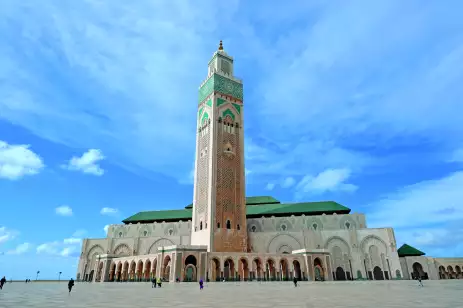
Don'ts of Moroccan culture
Don't photograph people without asking
Due to religious beliefs, cultural norms around modesty, and simply a desire for privacy, many Moroccans are uncomfortable being photographed, so always ask before taking photos of people, especially women and elders. If you're photographing stalls in the souks, bear in mind you may be expected to give a small tip in exchange.
Pro tip: If you're a keen photographer, learn the phrase “Nimkin nsowrek?” (Neem-keen n-soo-rek) which means "Can I take your photo?" in Moroccan Arabic. Even if your pronunciation isn’t perfect, the effort is appreciated.
Don't expect Western punctuality
Time flows differently in Morocco - it's a slower more relaxed rhythm. Things may start late and take longer - it's all part of the experience. Take it as an opportunity to practise patience but remember to allow for that if you have a packed schedule.
Don't use your left hand while eating or giving
Left-handers beware! In Moroccan culture, the left hand is traditionally considered unclean. (In Islamic tradition, the left hand is used for cleaning oneself after using the toilet, while the right hand is reserved for eating, greeting, and giving or receiving items.) Use your right hand when eating (especially if you're eating with your hands), handing over money, or giving gifts.

